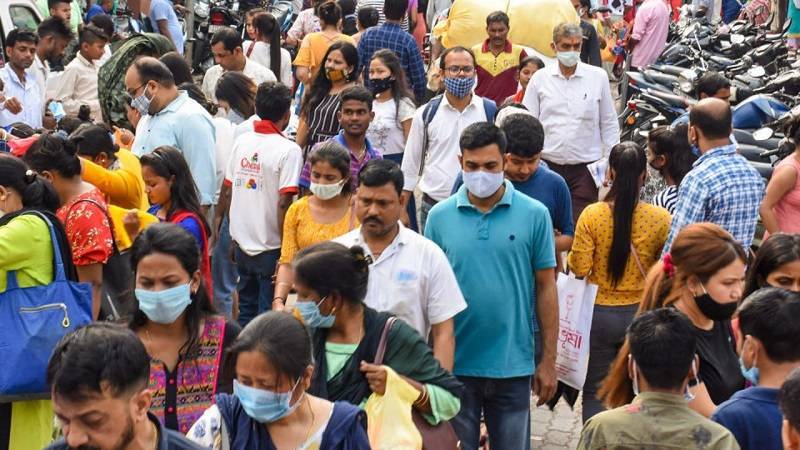New Delhi: At least two-thirds of India’s population has developed antibodies against the novel coronavirus (SARS-CoV-2) by now. This is according to the fourth national serosurvey that was conducted in June-July 2021, after the massive second wave of the novel coronavirus disease (COVID-19) in India. This is a significant increase as compared to the third national serosurvey in December 2020-January 2021 that pegged seroprevalence merely at 24.1 per cent.
Such an increase can be attributed to the exceptionally high number of COVID-19 cases in India during the second wave and to some extent, the ongoing vaccination drive. However, the survey also says that a significant chunk approximately 400 million people have no antibodies and are therefore susceptible to the viral infection. The serosurvey was conducted in the same 70 districts of 21 states where three rounds were conducted earlier.
As many as 28,975 people were enrolled, of which, 20 per cent were people of age 10-17 years. The age disaggregation of the findings is important as it suggests that more than half the children of age 6-18 years, have antibodies by now. As many as 57.2 per cent children of age 6-9 years and 61.6 per cent children of age 10-17 years have already been infected once. The highest seroprevalence 77.6 per cent has been found in people aged 45-60 years. They are followed by people above 60 years (76.7 per cent) and people of age 18-44 years (66.7 per cent).
These three groups are being vaccinated currently. The seroprevalence among vaccinated individuals is high as compared to those who are not vaccinated, the survey has found. Some 69.2 per cent of female participants showed antibodies, as compared to 65.8 per cent males. The urban population, with 69.6 per cent seroprevalence, has 3.1 per cent points more seroprevalence than the rural.


Comments are closed.